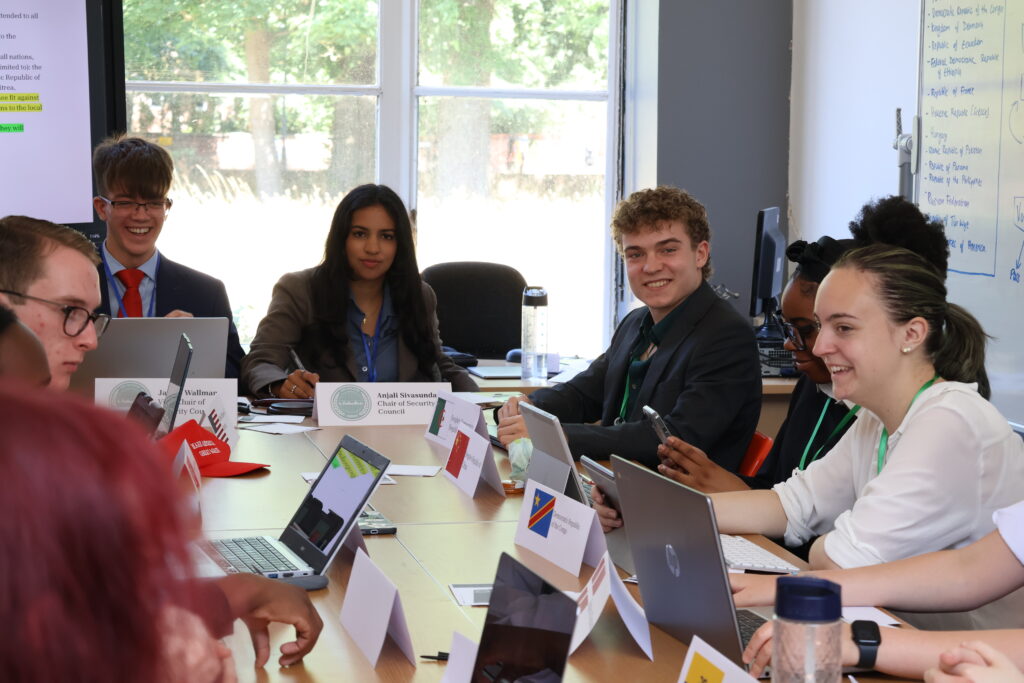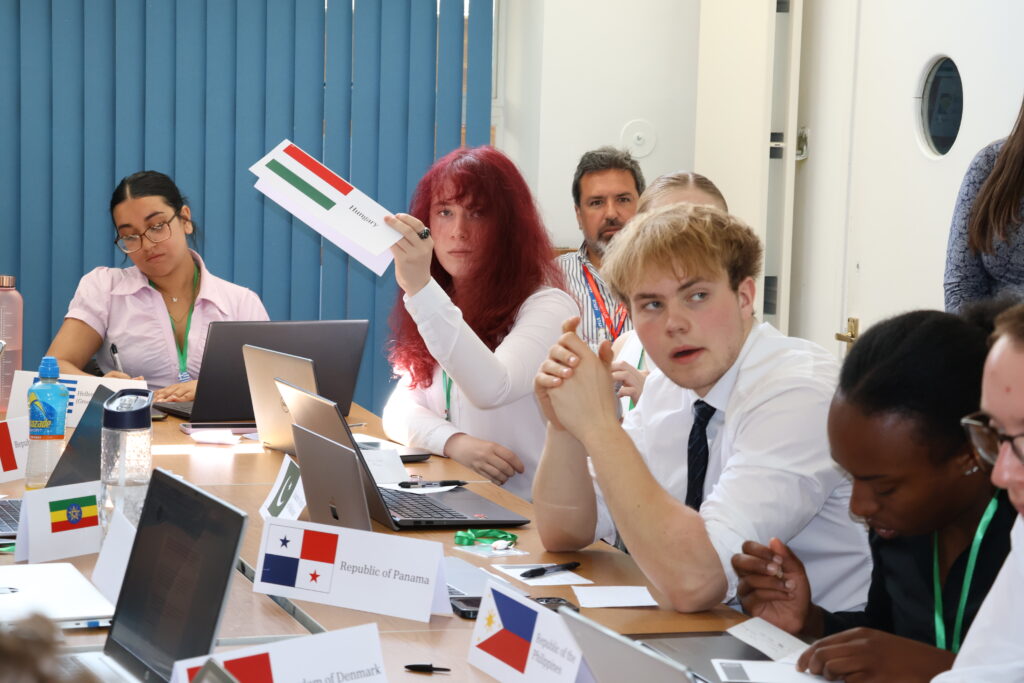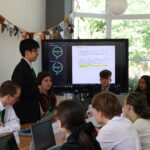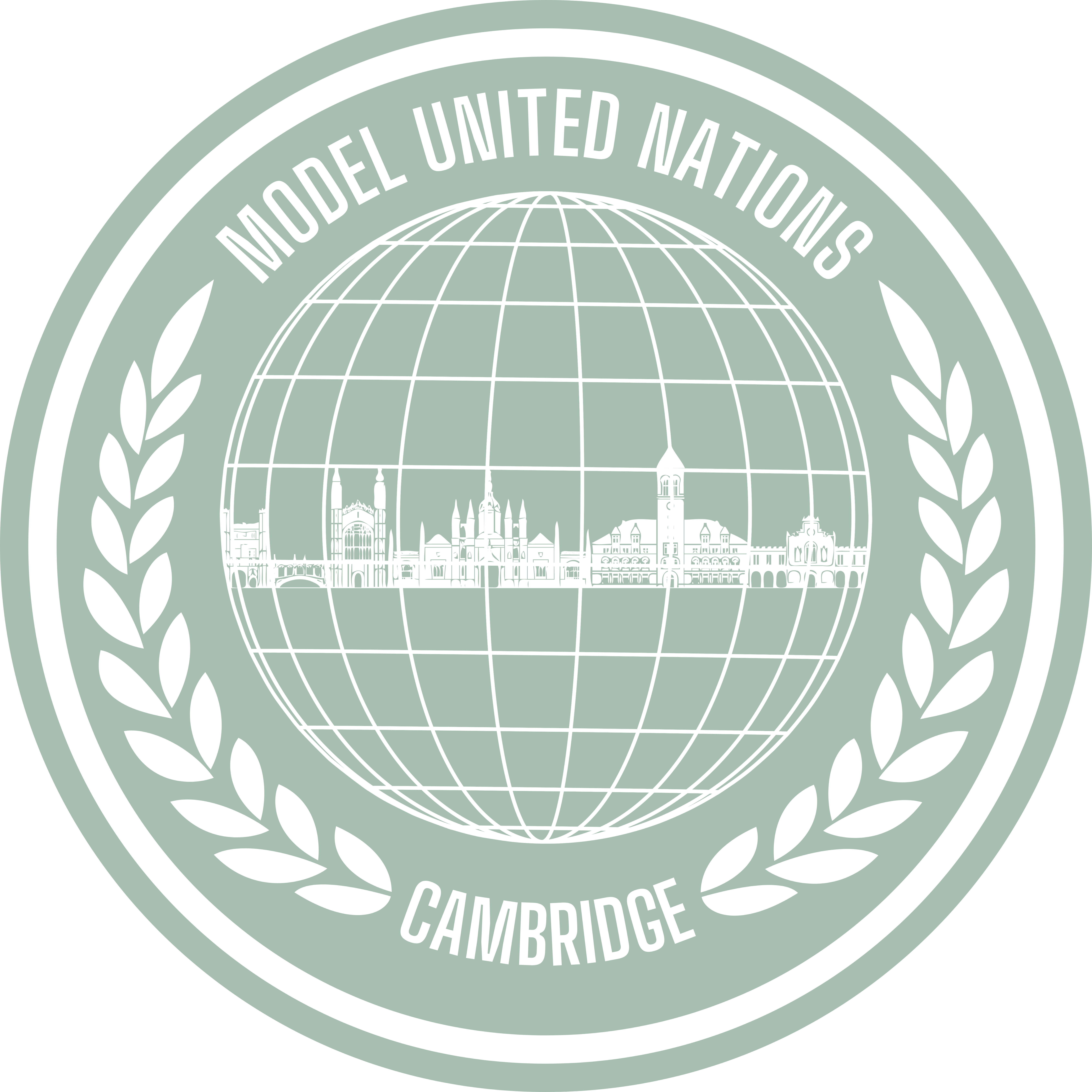Day 2
GA1- Disarmament and International Security
Assessing the Implications of a European Nuclear Umbrella – Regulating the Use of Modern Warfare (Space, Cyber and Biological)
The second day in the Disarmament and International Security Committee was more productive than the first, with much more resolutions and amendments being made. Before the committee started there was a reminder to the assembly of the etiquette of Model UN, stating the importance of correct persons and vocabulary being used, such as not using first person pronouns or using terms like ‘points of interest’ or ‘motion to divide the house’ more regularly.
The debating started by going over the amendment suggested by the delegate of the Islamic Republic of Iran that was in still in progress by the end of day 1 which was to add that UN member states are urged to stop terrorist organizations from using & developing biological weapons. During this there was a rally between Iran and Israel that was started by an accusation of terrorist collusion by Belarus, where they questioned whether the amendment proposed by Iran would ‘include the one they are currently funding’, referring to the Iranian government-backed group Hezbollah, who many would label working with the purpose of causing acts of terror. Iran took the stance that they were freedom fighters, pointing to their resistance against a tyrannical Israeli government’s attacks. The delegate of the State of Israel interjected to defend itself, saying their actions were ones of self-defense and to which the delegate of the State of Palestine refuted. The amendment was finally passed after much deliberation.
The second resolution of the committee came from the delegation of the Islamic Republic of Pakistan and dealt with the ‘Deploring of Excessive Arms Development’. Its main aims were to prohibit the development and prevent the use of biological, cyber and space warfare. The bill in its original state drew criticism from its current alleged aggressor, India who claimed it was quite hypocritical for the delegation of Pakistan to be the ones to introduce this resolution, seeing as they had ‘began the nuclear arms war’ with India and was currently acting aggressively in the Kashmir. The Islamic nation shut this down in two points: first, this bill didn’t concern nuclear weapons, deeming their comment irrelevant and second, they couldn’t claim responsibility for the arms race, maintaining their actions were in selfdefense.
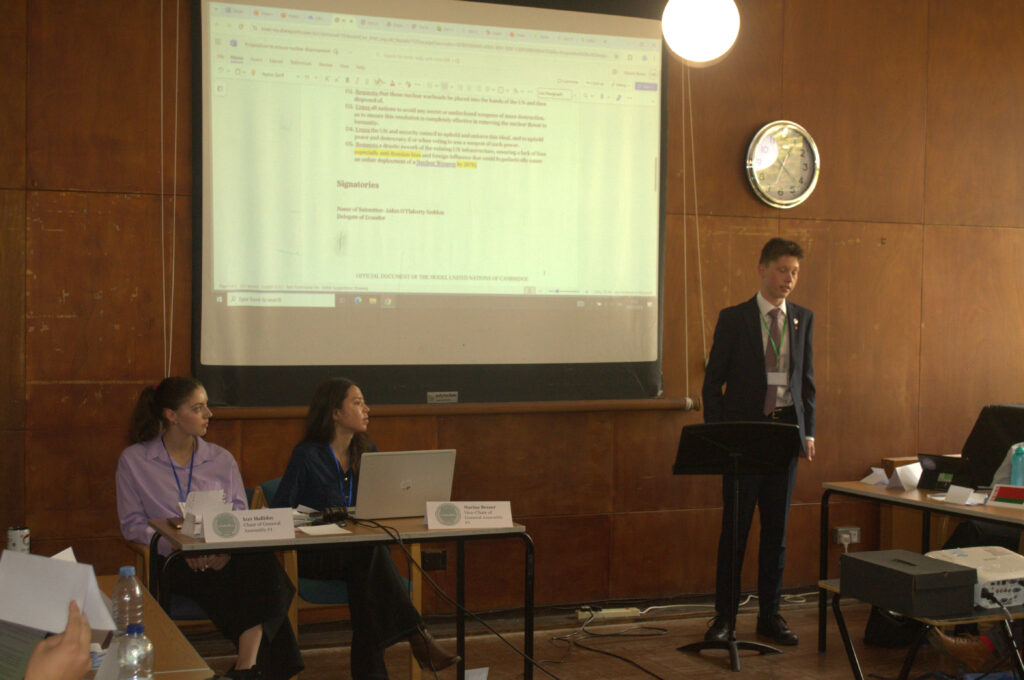
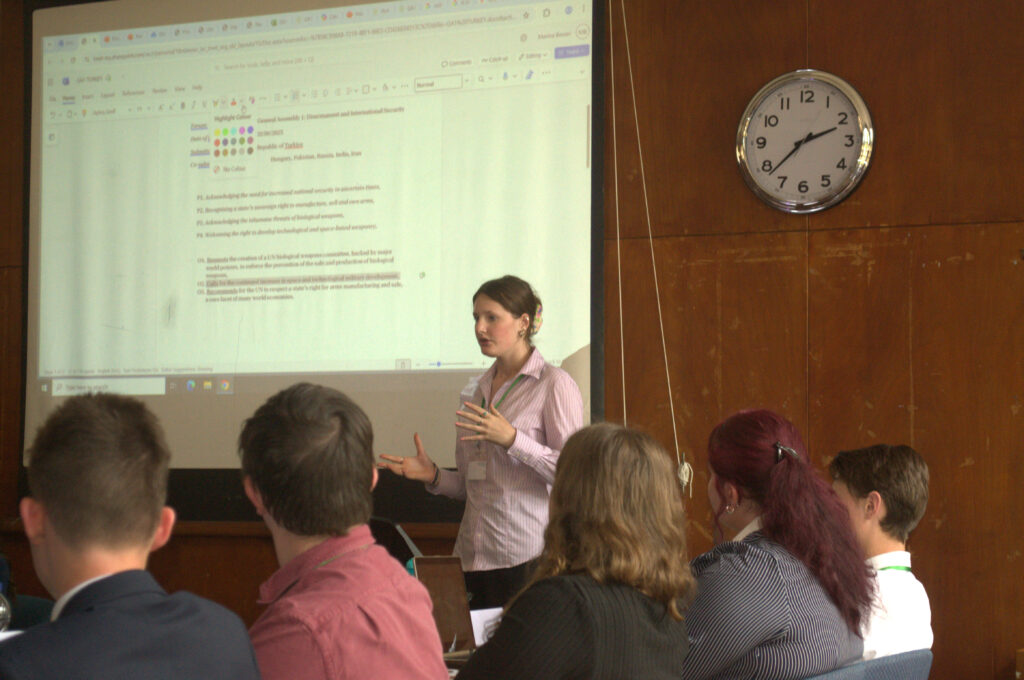
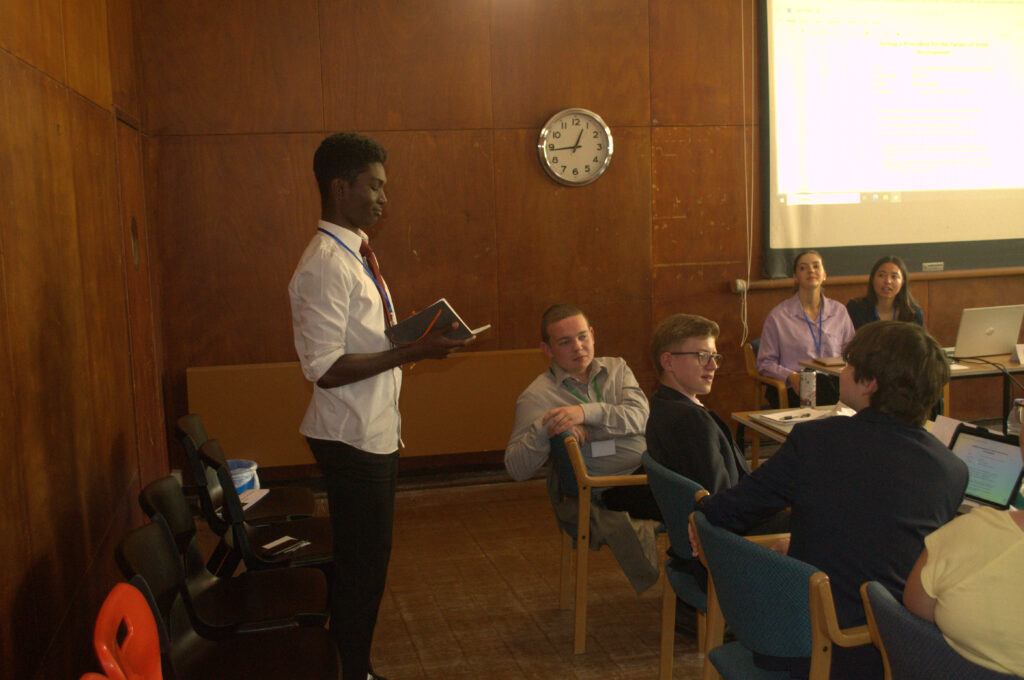
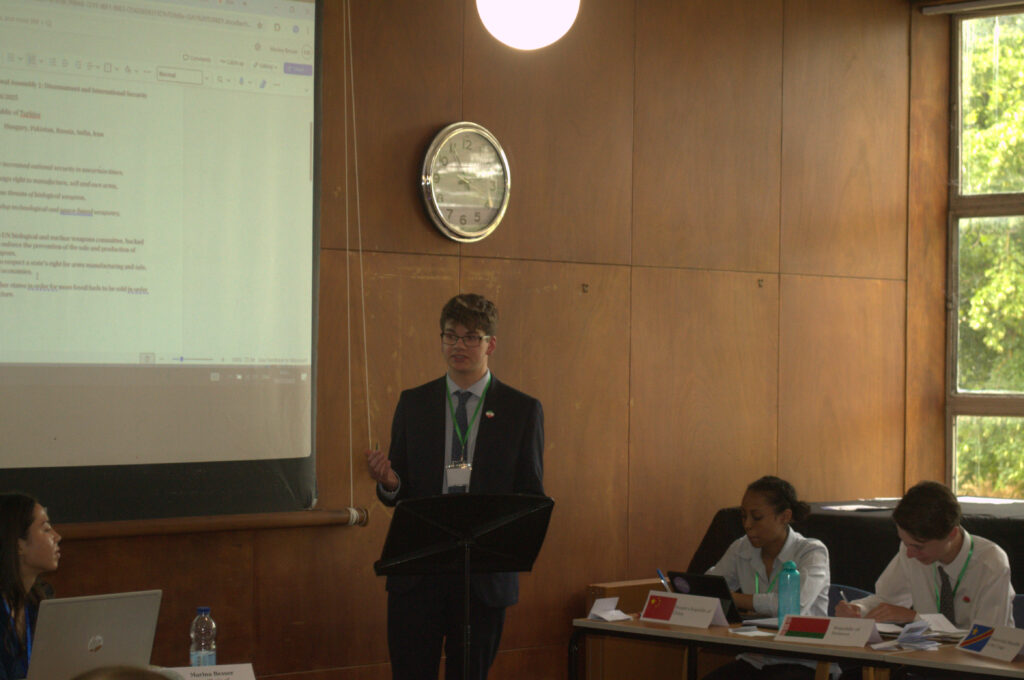
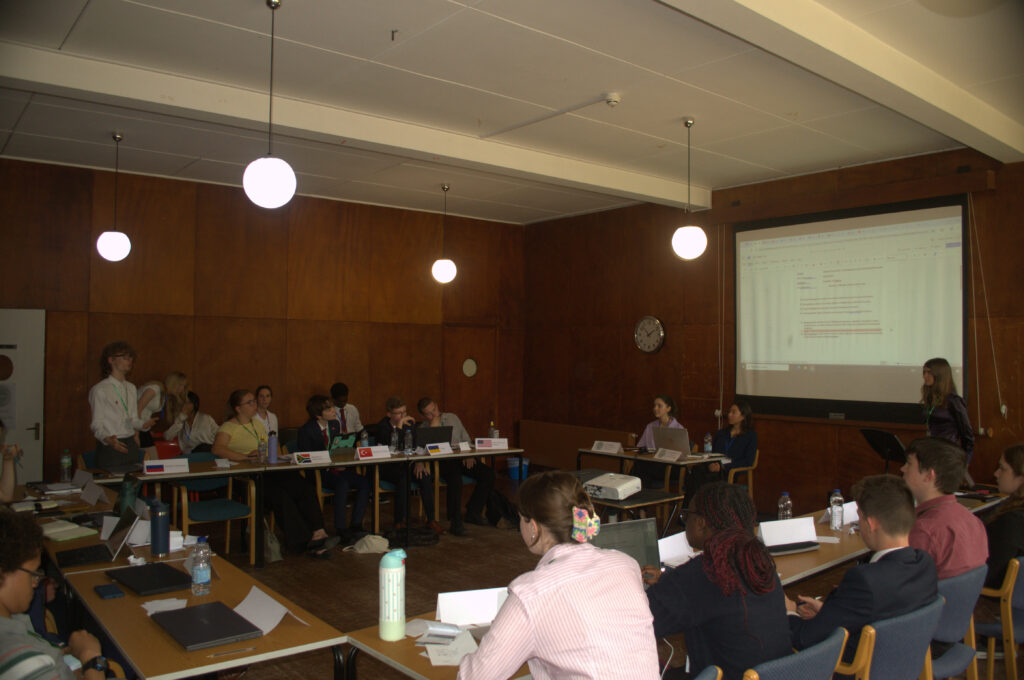
Amendment 1: The delegate of the Russian Federation wanted to remove space weapons from the list of arms that needed constricting, believing they are necessary as an outlet and by gradually removing them, countries will just invest into other, possibly more harmful, sectors of military. Iran disagreed wholeheartedly and called for space to remain a ‘weapon-free’ as long as possible. 2 The delegate of the Republic of India supported this sentiment as well. India also questioned the resolution itself into the point of restricting development of space technology, as only 3 countries, the US, China and pointedly Russia have the capability for cosmic artillery as of today. By continuing the development of these weapons, it would only increase the already massive gap, an idea Belarus could get behind. Iran agreed as well. When asked if this was because of possible spying operations by certain countries, they all but hinted at feeling threatened by the United States having this power over them.
Amendment 2 & 3: The following amendments were attempts by the Turkish delegation to take shots at the Hellenic Republic (Greece) as they had seemingly become set on disagreeing at every possible opportunity following their war of words during the lobbying on day 1. Their amendments to change parts of the resolution to focus on ‘biological’ rather than ‘modern’ weapons & to entirely remove a clause on ‘collective hypervigilance’ fell flat on their faces, receiving a combined 7 votes for out of a possible 38.
Amendment 4: The delegate of the Republic of India brought forward a small but important change by adding to an operative clause the responsibility of a government to stop terrorist organizations working within their jurisdictions from breaching this bill as well. After being asked for clarification on their understanding of a ‘terrorist organization’ the delegate listed many around the world that would fall under this category, like Hamas, Hezbollah, Boko Haram, ISIS and the Taliban, claiming the similarity in these being their only purpose being to act for terror. This amendment was arguably a display of assembly lethargy, as the delegation of India was able to get it passed in committee with only 4 committee votes, with the majority of countries abstaining. This begs the question whether it would have passed had some idle delegates decided to form an opinion.
The next resolution came from the Russian Federation and started with a similar intent as some of the earlier resolutions seen at this committee. The difference was in this bill, there was a clear condemning of the actions of Ukraine who, with the aid of the United States, has been secretly developing biological weapons to use in their war against Russia since 2023. This, as well as a mention of the conflict between India and Pakistan in the Kashmir, were points of contention among those on the assembly. However, before any amendments were made, the delegate of the Republic of India was quick to remind Russia of their recent involvement with the rebellion forces against the Asad regime in Syria, a movement which was known for their use of these weapons, as well as in Mariupol against during the war with Ukraine raising questions of hypocrisy.
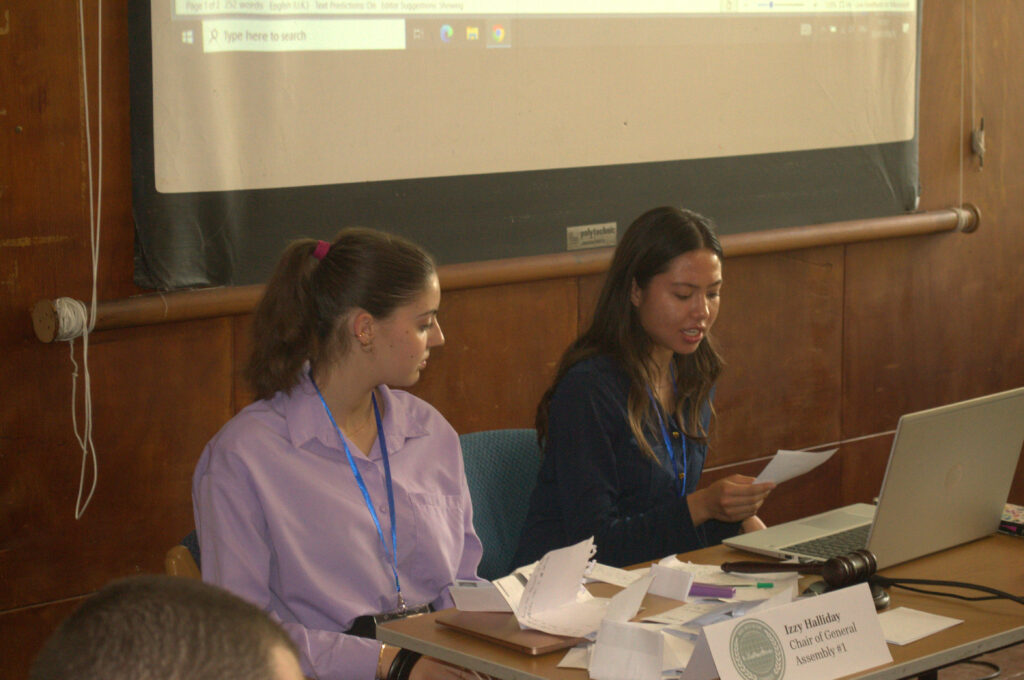
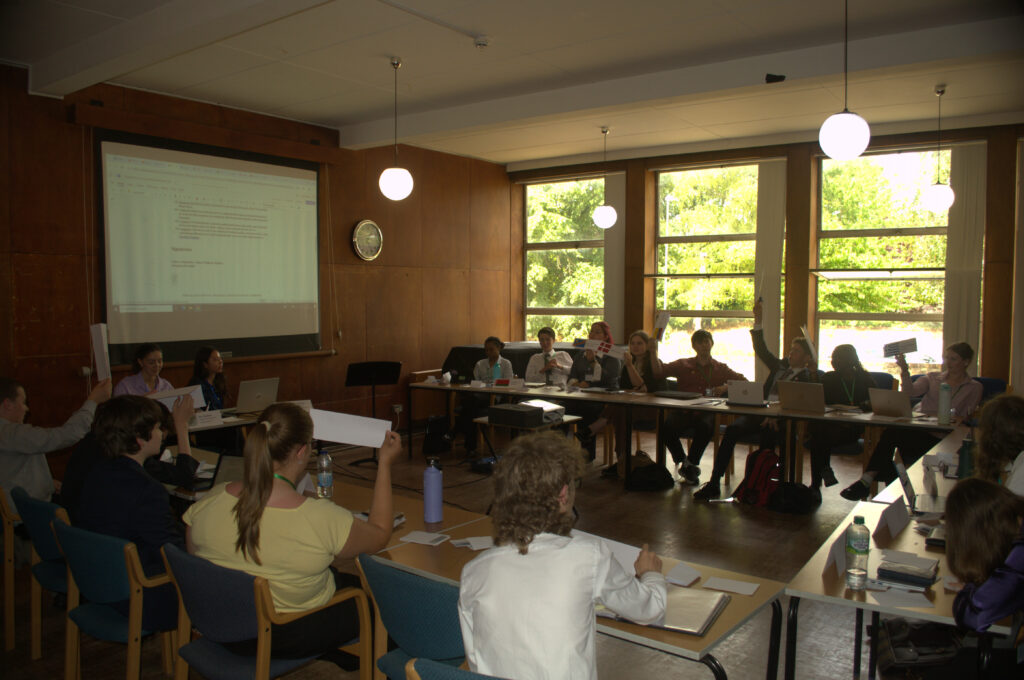
Amendment 1: Present a formal ‘Islamic Confederation’ that may be left to monitor the development of weapon arsenals in the middle east. This in place of the United Nations, who they felt had the habit of being Anti-Muslim and unnecessarily wary of the region. The main problem this faced wasn’t so much the idea of the amendment but the phrasing, which made it blatantly clear that Israel was not to be invited to said confederation. The delegate of the State of Israel claimed to feel threatened by this act and stated it would cause yet more division in the area. It was later rejected.
Amendment 2: Ukraine defended themselves following the accusations laid out in the resolution and called for the operative clause to be altogether removed. This was passed quite convincingly, which prompted the delegation for the Republic of Belarus to take the floor and accuse the US of using money and military influence to avoid any criticisms in UN discussions, causing a heated debate between the two where allegations of corruption, ‘antiIslamic’ and ‘anti-Russian’ feelings were thrown around. In the end, this amendment passing deemed the rest of the resolution redundant, leading to it being rejected.
Finally, the most progressive of the resolutions so far was brought up. It belonged to the delegation of the Republic of Ecuador and proposed nuclear disarmament in the form of the collection of all such weapons by the UN and stored in an international location like Antarctica. These warheads would only be used when a 2/3 vote was reached by the UN member states felt that a country had committed a crime worthy of that as consequence. In this way, the idea of nuclear deterrence was still being implemented, but it removed the danger of the failures in theories of mutually assured destruction. After much deliberation over issue like whether there should be total disposal of the weapons from the Hellenic Republic or if non-nuclear powers could continue development until a nuclear development ‘deadline’ was reached (both of which were rejected as amendments) the resolution was in a state that was fit for voting and was passed almost unanimously proving that despite some divisions about how to go about it, the committee was committed to the goal of nuclear disarmament.
GA4- Special-political and decolonisation
Assessing the Need for Former Imperialist States to Pay Reparations to Former Colonies – Examining the Right to Self-Determination and its Realisation
In today’s session, delegates tackled the fraught intersection of counterterrorism, decolonization, and membership legitimacy. Central themes included Palestine’s UN aspirations, Israel’s military conduct, and global responsibilities. Palestine strongly advocated for full UN membership, arguing: “Self-determination needs to be dealt with on a case-by-case basis.” It acknowledged Hamas’s presence in Gaza but rejected the notion that Hamas represents the Palestinian Authority. Nevertheless, it conceded that formal membership is contingent on disarming Hamas. Israel framed its military actions as defensible, stating: “Military is a useful deterrent and establishes a certain legitimacy… Self-defense.” Citing the October 7 attack—which killed over 1,300 civilians—it emphasized that Israel’s use of force follows Hamas’ instigation. It accepted Palestine’s eventual membership post-Hamas eradication
- US and Russia debated whether acts of self-determination qualify as terrorism.
- Republic of Congo inquired if governments would face consequences for sponsoring militant groups.
- When Ethiopia’s resolution was amended to limit Palestine’s UN voting rights, the amendment failed in a tied 50–50 vote, preserving voting privileges.
Palestine proposed establishing a UN committee to assess self-determination versus security. Amendments advocating reparations and sanctions were discussed: France, Congo, and Panama argued for economic development and transparency over simple financial payments or blanket penalties. Israel’s proposal to legalize occupation for counter-terror purposes was rejected, maintaining clause 3 which condemns illegal occupation.
The session concluded with the adoption of Palestine’s resolution, affirming tailored assessments of self-determination and rejecting illegal occupations. It affirmed support for full membership—subject to internal reforms—underlining the committee’s balancing act between principles of justice and practical security. In parallel, mounting international scrutiny—especially over genocide claims—suggests deeper accountability mechanisms may follow in the UN’s Fourth Committee and General Assembly.
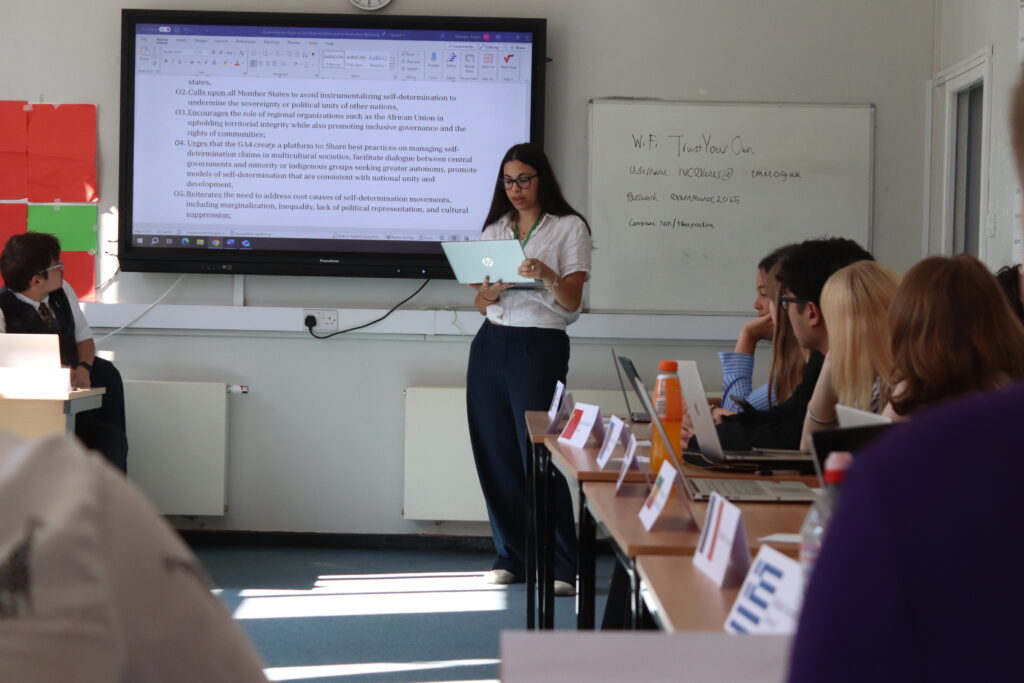
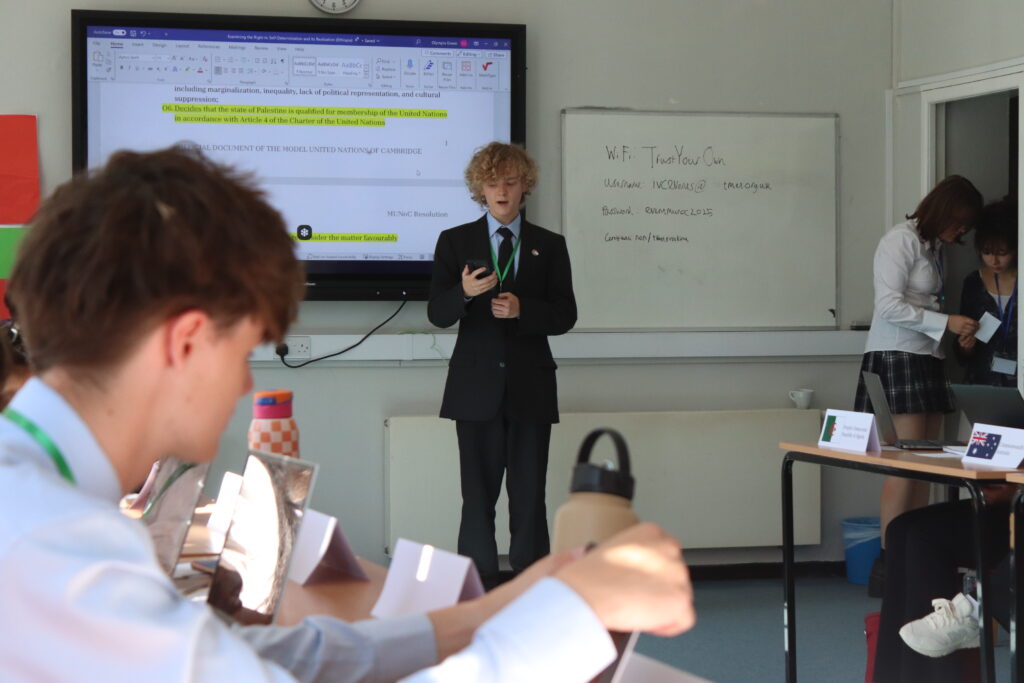
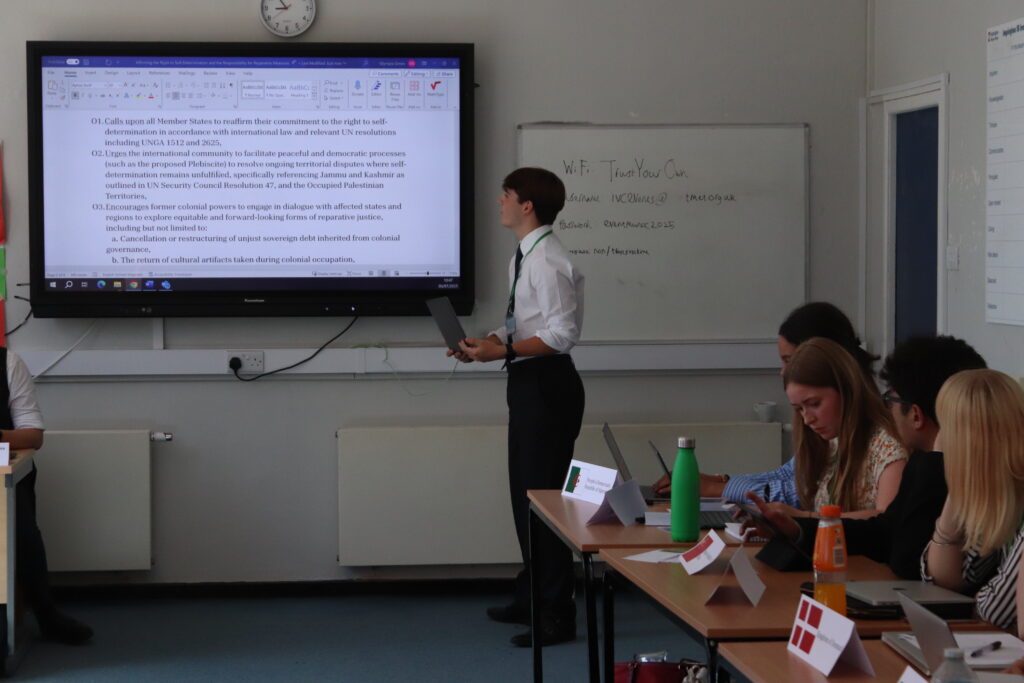
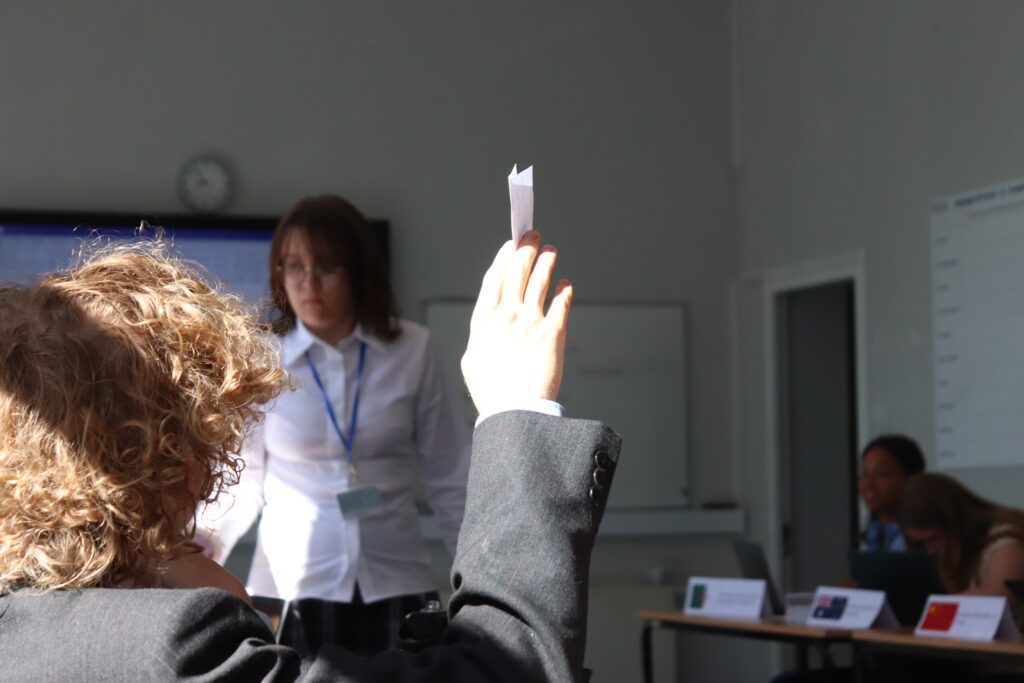
Key Quotes
- Türkiye: “We believe there is a genocide under investigation that should not continue.”
- Palestine: “Isn’t it ironic to continue to mention Hamas as if it represented the Palestinian authority?”
- Israel: “Once violence has been instigated, countries should take military action.” • US questioned: “Are all acts of determination acts of terrorism?”
The debate underscored stark tensions: state security versus self-determination; legal sovereignty versus militant influence; and humanitarian law versus military necessity. The committee’s resolutions reflect both a readiness to support Palestinian statehood and a demand for demonstrable internal authority and adherence to international norms.
GA6- Legal
Defining and Regulating Misinformation – Addressing the Erosion of Trust in International Institutions
At the Model United Nations of Cambridge, the General Assembly Sixth Committee (GA6) held dynamic and often heated debates across three sessions, addressing UN reforms, reparations for former colonies, combating misinformation, and tackling institutional bias.
Session 1: Security Council Reform The committee began with Saudi Arabia’s proposal to expand Security Council (SC) membership, arguing that representation should reflect countries most affected by crises, not just powerful or large nations. India and Palestine questioned whether this approach would genuinely promote fairness or reinforce power imbalances. Delegates from Israel and the Philippines worked on amendments clarifying rules for temporary and permanent membership, while Panama stressed the need for more geographic diversity to make the Council truly representative. These passed, signaling cautious agreement on Social Security reform. Australia’s amendment calling for equal representation of nations oppressed by conflict also passed. Panama’s key proposal requiring P5 members (US, UK, France, Russia, China) to publicly justify veto use was widely supported to strengthen transparency and accountability.
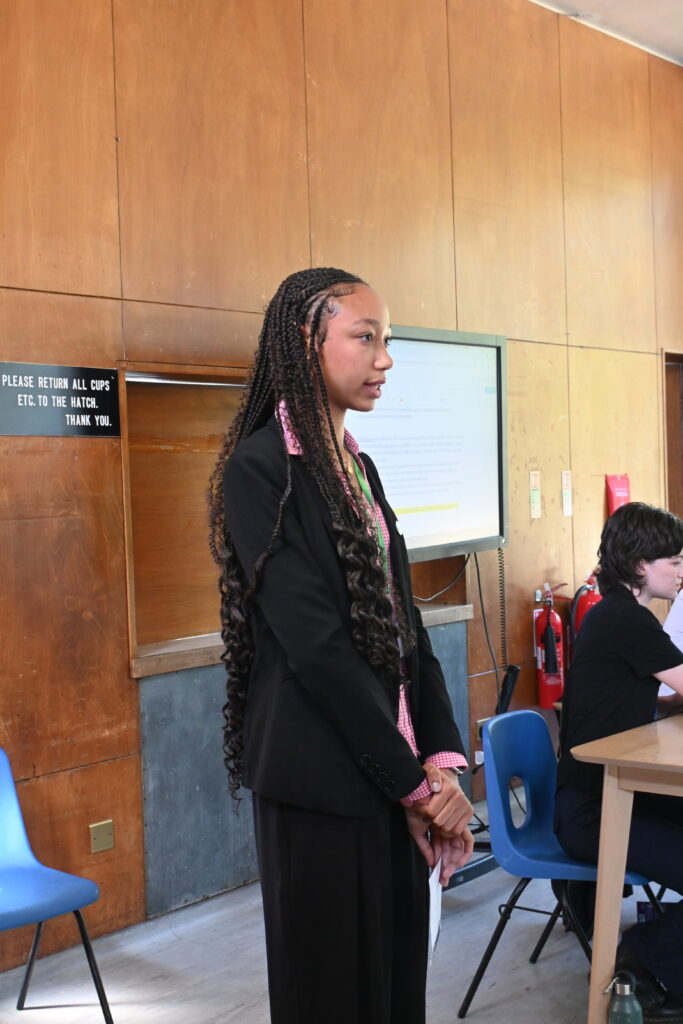
Session 2: Reparations and Misinformation Debate shifted to reparations as Pakistan’s resolution urged former imperialist states to acknowledge and address damages inflicted on former colonies, which passed despite questions from the Philippines and Russia. The committee then tackled misinformation through a US-led resolution distinguishing misinformation, disinformation, and malinformation. Algeria’s amendment clarifying censorship definitions passed after debate. Israel argued for promoting media literacy rather than state censorship, while Russia’s amendment to restrict free speech to combat harmful content passed, exposing divisions on balancing rights. Additional amendments from Panama and others proposing UN-backed bodies to regulate misinformation passed but raised concerns over sovereignty and enforcement.
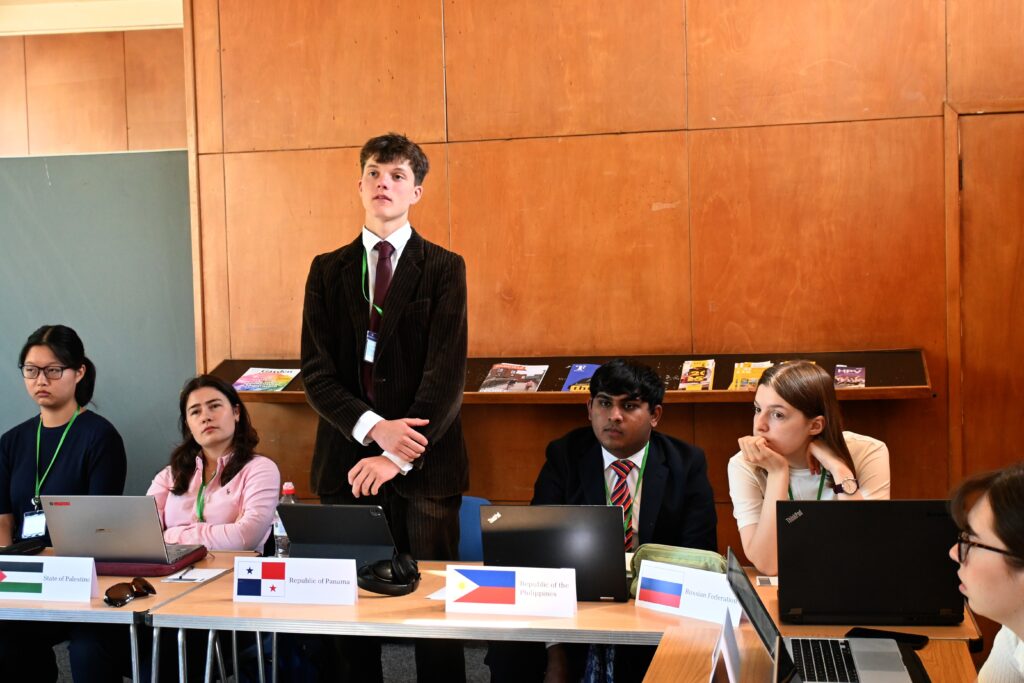
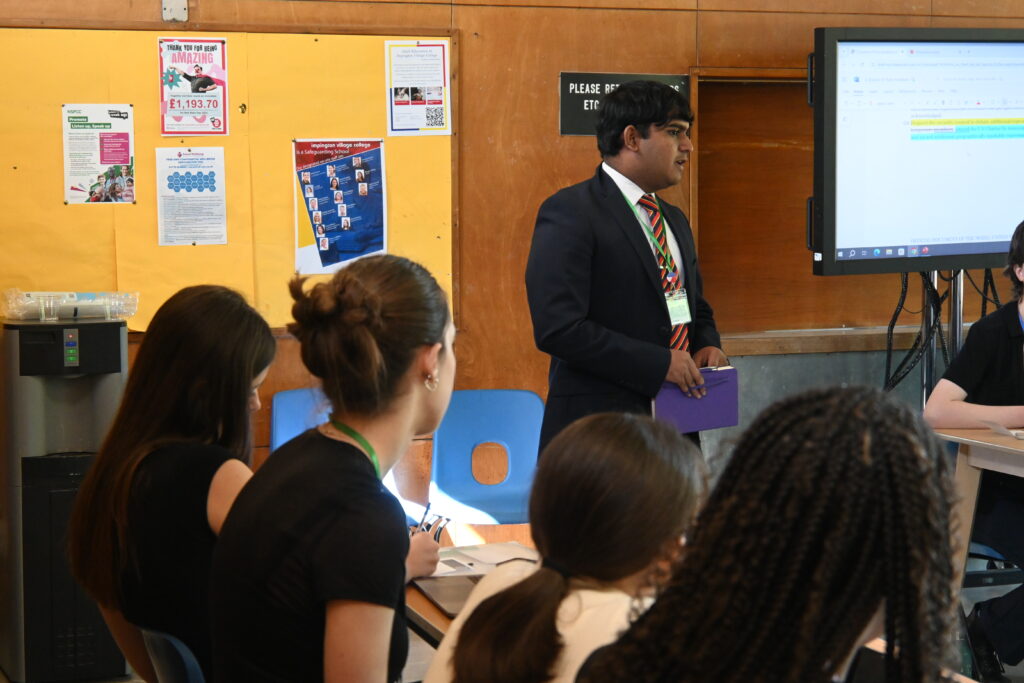
Session 3: Bias and Accountability Russia introduced an amendment accusing international institutions of pro-Western bias and called for International Criminal Court (ICC) reforms. Palestine’s amendment demanding US accountability for supporting Israel passed after intense debate. Ukraine’s amendment expanded accountability to conflicts beyond US involvement, while the Philippines’ proposal for ICC oversight failed due to sovereignty concerns. Ukraine’s later emphasized on Eastern bias passed, broadening discussions of prejudice. The final resolution passed, and a motion to spill concluded the session, leaving key issues open for future negotiation.
Economic and Social Council
Preparing for the Expected Increase in Natural Disasters Due to Climate Change – Preparing for Future Global Health Crises
The USA criticized the WHO for its delayed response to crises like COVID-19, arguing that “only a small 20% of the WHO’s $4.4 billion in funding went towards emergency preparedness” and that “developing countries are generally suffering in the hands of the WHO.” The resolution emphasized the need for a politically neutral organization, and the USA proposed voluntary funding for such a body. However, Palestine advocated giving the WHO “more autonomy without having to jump over hurdles from the UN,” while Russia claimed slow WHO research “splits the world.” Although many believed that “fixing is better than disbanding the WHO,” the USA remained unconvinced. Ethiopia added that the proposal overlooked gaps in education and emphasized that countries like theirs rely on “American doctors.”
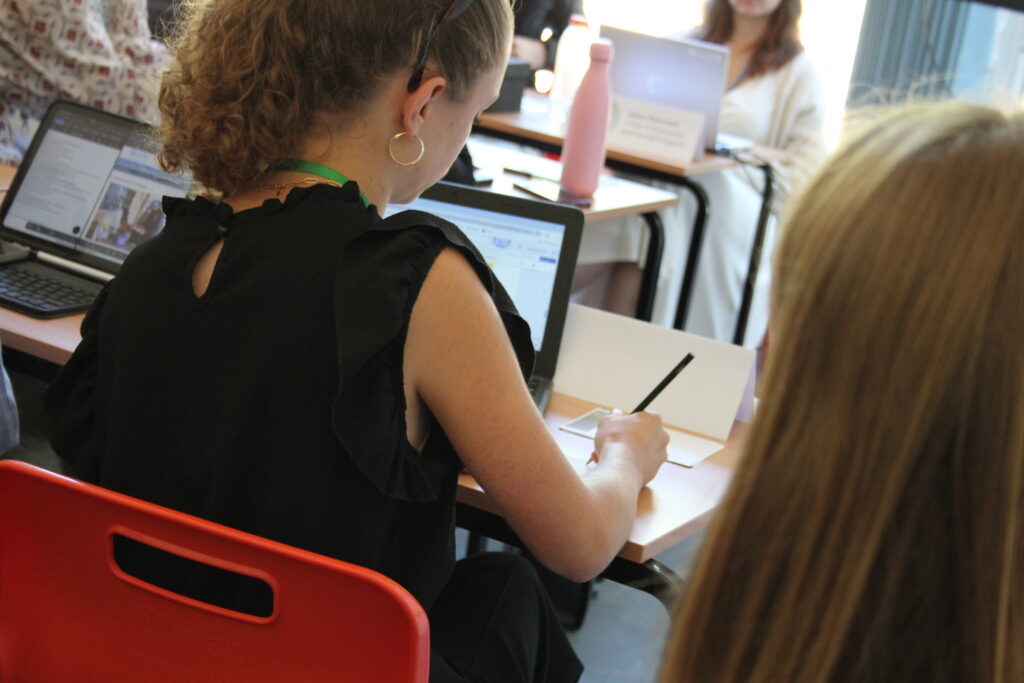
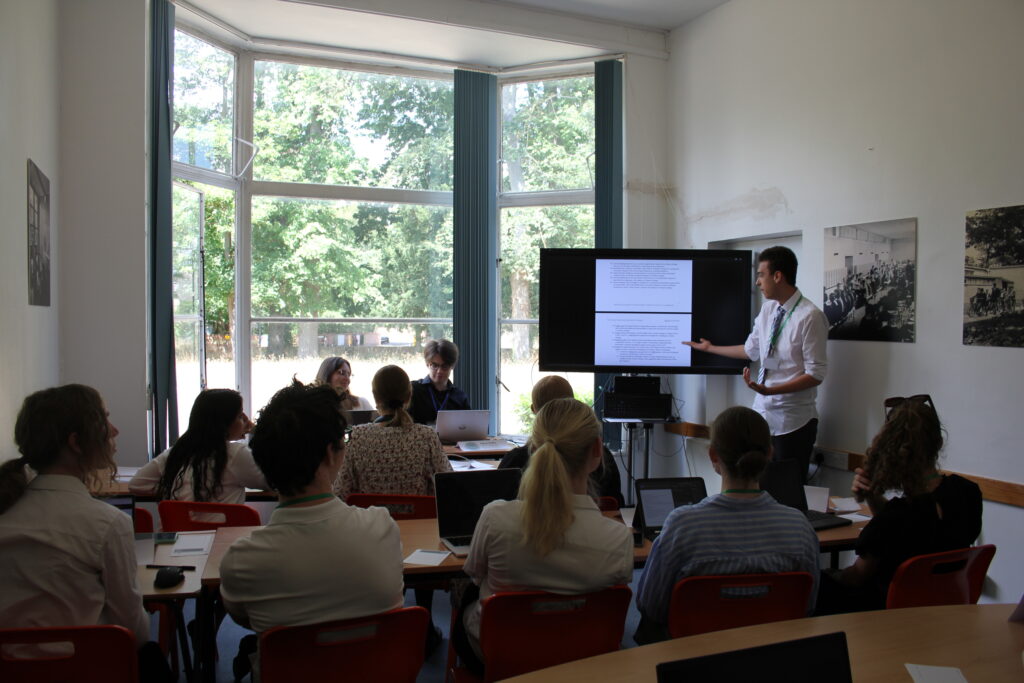
South Africa believes that the WHO’s slow responses to Covid-19 is due to a combination of political bias and some countries experiences of unknown viruses. Palestine also stated they ‘didn’t trust the USA to achieve’ what they are debating for leaving the WHO severely underfunded. The overall outcome of the first debate was everyone except the USA was against the resolution.
The second resolution was from Ethiopia ‘allowing least developed countries to adapt to the impacts of climate change’. Ethiopia suggested that the least developed countries should be excluded from paying, though later clarified they should just pay less. Cuba opposed this, warning exclusion could make things “worse,” while Palestine countered that “we are all collectively responsible,” as even low emitters contribute to the crisis. China argued that investing heavily in climate tech is ‘already doing enough’ and should instead share the knowledge of technology, was urged by Ethiopia to contribute since they make up 30% of emissions. The USA, who recently exited the Paris Agreement, claimed a carbon tax would unfairly remove money from the economy and be “disproportional.” Saudi Arabia agreed that developing countries should be taken out of this resolution as those working on tech should be exempt from carbon tax, as Saudi Arabia, with their 55% oil-based economy wishes to be net 0 by 2060, while Iran argued that oil dependence makes equal taxation unjust.
Pakistan, in conflict with India, said climate is the “least of our worries,” while Russia warned that letting the UN define crisis status could create bias. The resolution was ultimately passed, though it faced opposition from Russia, Saudi Arabia, Iran, China, and the USA, with Ukraine abstaining. In the third debate, USA discussed a preparation in response to wildfires using AI to track and predict when and where wildfires will be. However, Ukraine and Saudi Arabia mentioned that AI causes carbon emissions and requires large amounts of water to work. This could result in worsening the situation as droughts would cause more fires. Feeling the resolution was to American-centric it was eventually changed to the preparation for all natural disasters, with only Philippines voting against the resolution due to them ‘disliking the US’.
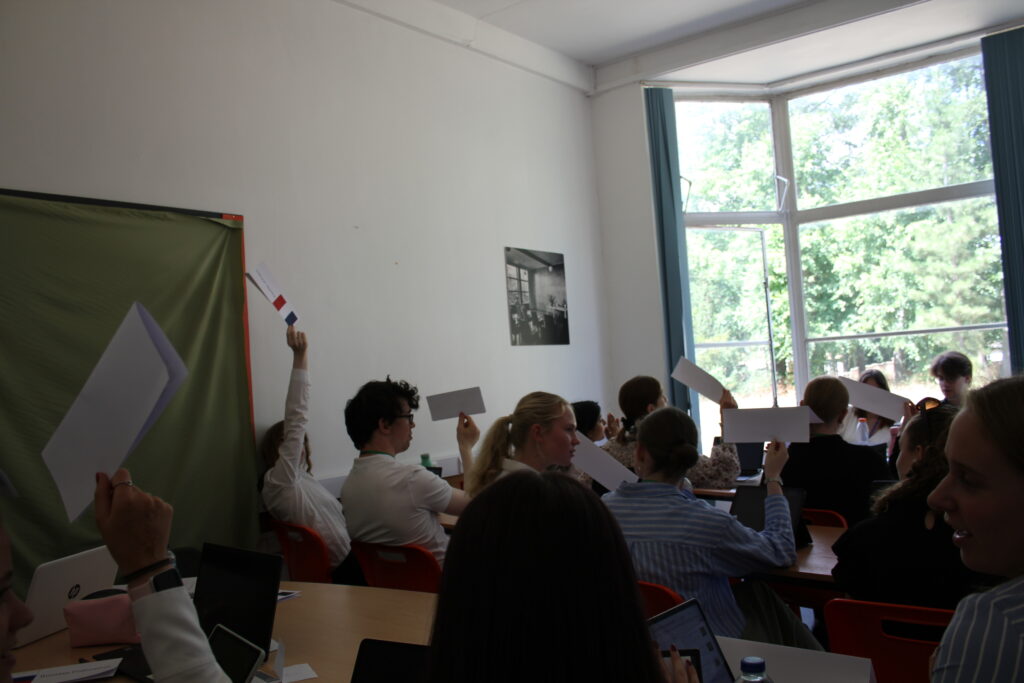
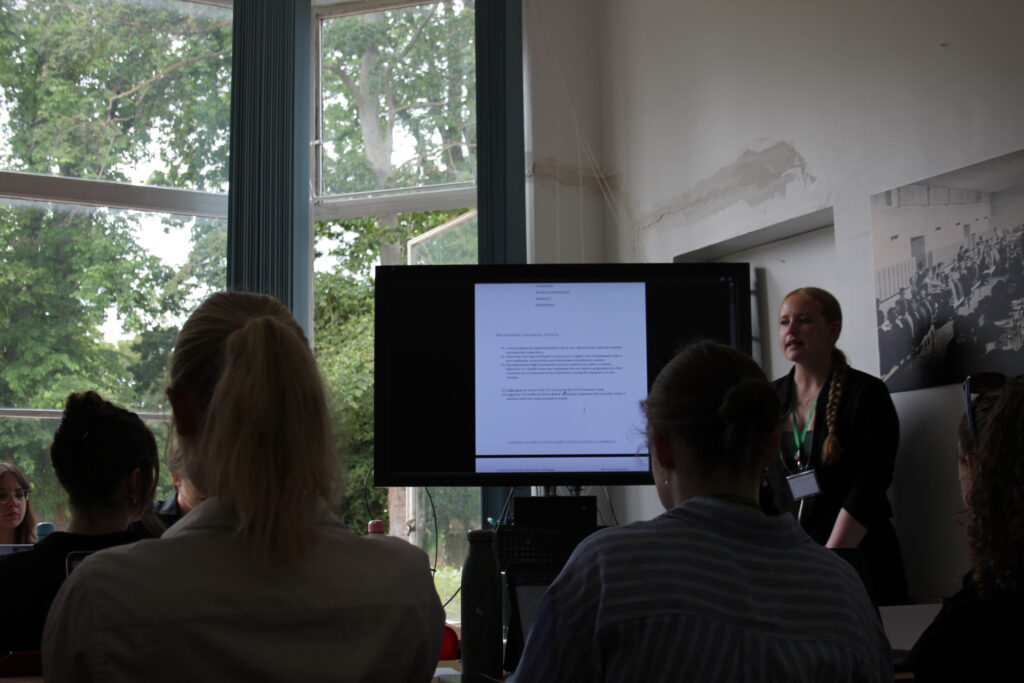
The final debate discussed Ethiopia’s want for ‘global pandemic response’ to help low-income countries access the help they need to respond and deal with pathogens and mutation effectively, reducing the overall spread of the virus. South Africa thinks it necessary that G20 countries must pay for the funding of this however Saudi Arabia claimed that it shouldn’t have to be compulsory as they have already donated $385 million to global health funding. In contrast the Philippines wants contribution to be mandatory to help other countries such as themselves, believing Saudi Arabia hasn’t paid enough due to the number of rich citizens. However, Russia agrees with Saudi Arabia as Russia themselves aren’t putting money into the WHO even though many countries including Russia benefits from them especially in this time of conflict. Only the USA, Saudi Arabia, China and Russia voting for the amendment. Overall, the Philippines voted for the resolution, Ethiopia abstained, and the resolution was not passed..
Security Council
The second day of Security Council debates continued yesterday’s debate regarding the changes in nuclear policies, discussion of the post-truth world and interestingly the Security Council Reformation which was proposed by the GA6. The debate began with finishing off the debate regarding nuclear disarmament and focused on practical and punitive mechanisms to support disarmament. The delegate of Turkey introduced an amendment calling for economic sanctions on nuclear powers that are not signatories to the Nuclear Non-Proliferation Treaty meaning that any powers that own, manufacture or use nuclear weapons will have sanctions imposed on them which would encourage the nations possessing such technology to disarm. Panama pushed back strongly, warning of widespread economic repercussions — citing possible trade disruptions with China, Russia, and the USA. Despite Turkey’s insistence that nuclear disarmament outweighed economic concerns, the amendment failed, gaining only 3 votes. The delegacy of Ecuador further introduced a second-degree amendment calling for ratification and implementation of the Treaty on the Prohibition of nuclear weapons. Despite concern from Hungary and Turkey about its viability and relevance, the removal of economic sanctions eased the opposition. The second-degree amendment passed with only Turkey voting against, and the first-degree amendment followed suit.
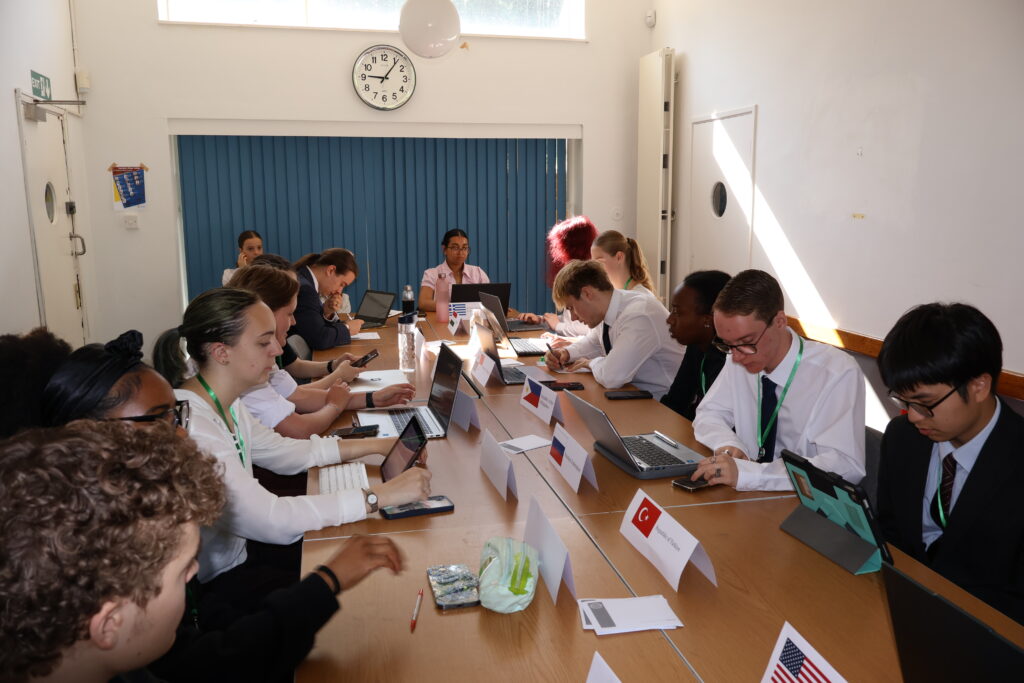
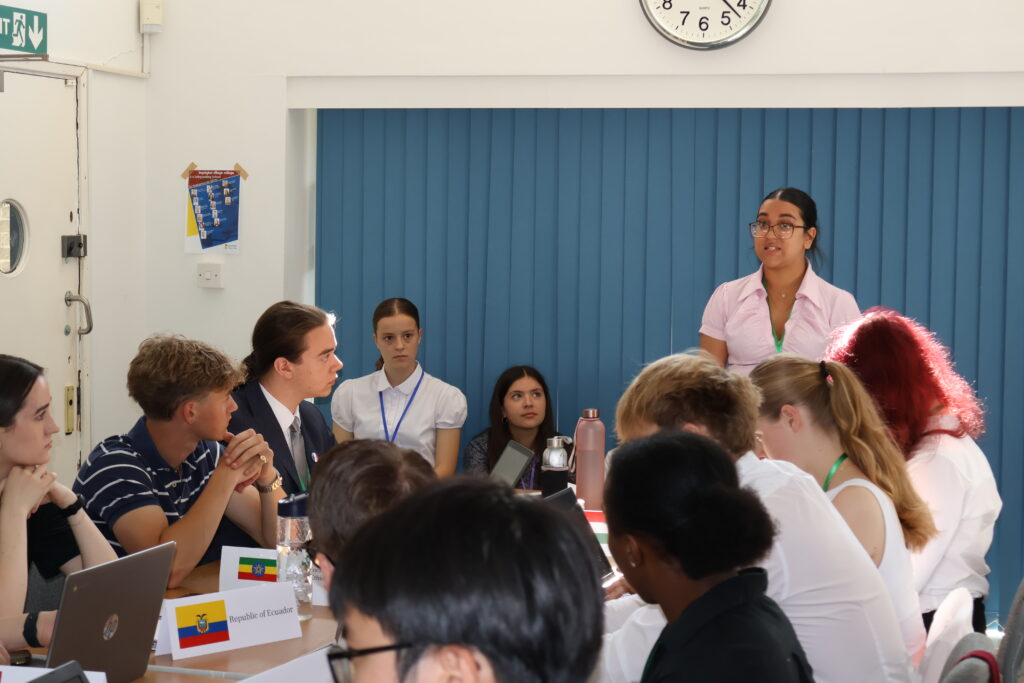
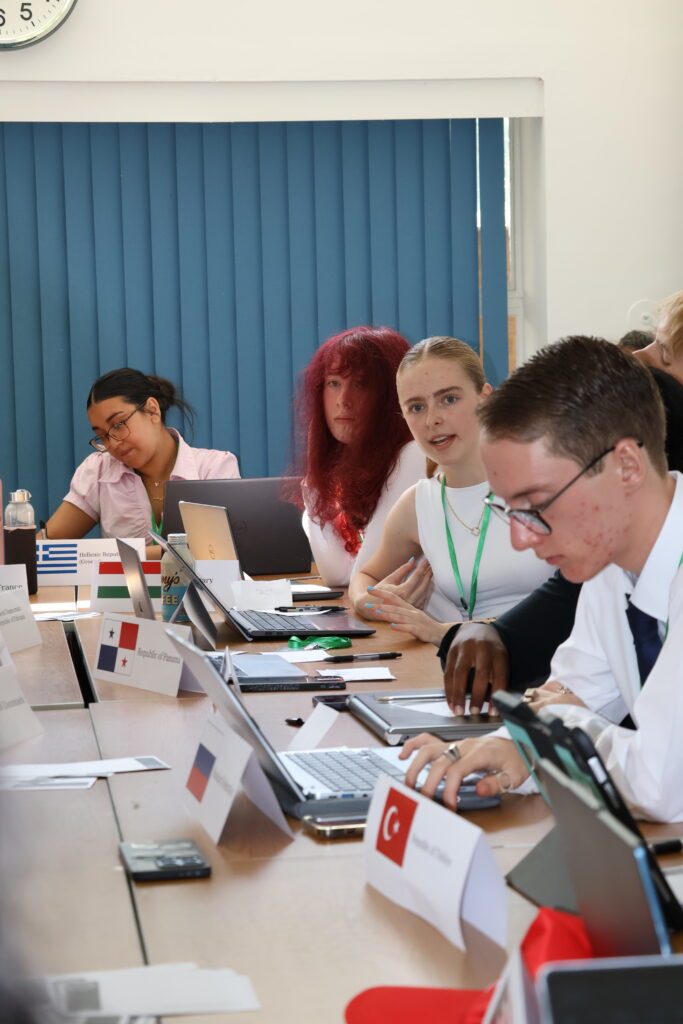
Another amendment by the ambassador of Greece urged all countries to sign the IAEA Convention on Nuclear Safety. Though it has existed since 1996, Greece argued it remained relevant in ensuring safe disarmament procedures. The delegate of the Republic of Panama objected to recycling “ineffective” treaties, though clarified they did not oppose the treaty itself. The Greek representative, along with nations delegates of such countries as China, Russia, France, and Pakistan, argued that safety must be prioritized as countries move toward disarmament. The amendment was passed. As the session was concluding, the delegate of the Republic of Algeria issued a final emotional plea: “For your child, for your country, for the world, for humanity.” The United States echoed the sentiment, warning that a single veto or abstention could put the entire resolution at risk. The summoned delegate of Iran continued to press for clarification on how disarmament would be fairly handled, especially regarding states like Israel, who has in previous years has been difficult to negotiate and the USA responded by urging a slow reduction of nuclear reliance, favoring deescalation and conventional warfare.
The resolution was passed with a nearly unanimous vote with no opposition, but with Hungary and Panama abstaining.
Setting the terms of the Human Rights resolution, the Chair stated that it was “Recalling the universal declaration of human rights and treaties and covenants created to protect human rights, regretting the widespread violations of human rights in regions around the world, and noting with concern the lack of state action to prevent such abuses as well as some states’ active obstruction of efforts to address violations.” The Democratic Republic of Congo (here after referred to as “Congo”) set forth an amendment that “Declares that the European Convention of Human rights should be extended to members of the UN so that more countries may be held accountable.” The Congo started by acknowledging Palestine and their feelings and referenced their experience with colonization and how it has affected their feelings towards human rights. The floor next went to Hungary, who mentioned Israel, and referenced how it stood with Hamas. The Congo asked Hungary to clarify this and acknowledge that there were civilian deaths caused by the aforementioned conflict, whereupon Hungary took the possibly controversial stance that as the civilians belong to their country, they are partially responsible. At this point, Algeria stepped in, and asked Hungary to explicitly clarify if it condoned the death of innocent civilians. Hungary concluded the debate by stating that “accidents happen”, yet Israel has the sovereignty to defend itself, and this should under no circumstances be infringed upon. The floor next went to Algeria, who inquired as too what Israel may be potentially trying to hit when hitting an accidentally killing civilians in the process of bombing Gaza. Hungary retorted by stating that Gaza is under the control of Hamas and therefore may have terrorist activity. Algeria put forward the argument that if terrorist traces where detected in Hungary, would it be acceptable to “carpet bomb” an innocent Hungarian hospital? After brief consideration, Hungary accepted this argument and conceded that it was not acceptable. The United States then took the floor, and spoke out against the amendment, arguing for a “two state solution” instead. In response to this, Panama reminded the United States that the Amendment stood for a “universal cause”, and that it was not the role of the UNSC at that time to dictate how to end the conflict in Gaza. The United States responded to this by saying that that it could not be feasibly at this time ignore its allyship with Israel, to which the Congo responded by saying that both sides will be held accountable for violations of human rights. The United States agreed with this point but still did not believe that the council should pass this amendment. Voting on the amendment, all except Hungary and USA, so naturally the Amendment passed.
